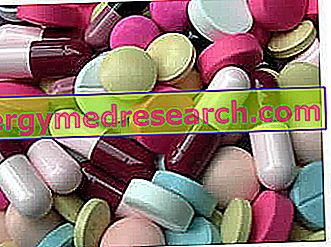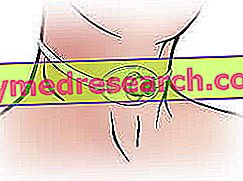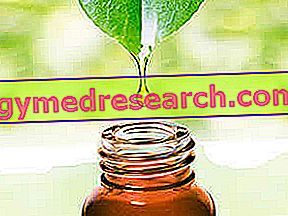Generality
Chitosan derives from the deacetylation of chitin, a polymer that protects crustaceans and insects, giving hardness and resistance to shells and armor.

In the industrial field Chitosan is produced and used to purify marine waters, exploiting its ability to attract oil-based compounds like oil. This interesting feature makes Chitosan a particularly interesting substance also in the medical field.
Although our body is not able to digest this fiber, its ability to absorb fats and promote their elimination with feces could be used in the formulation of many products intended for people who are overweight or have high levels of triglycerides and cholesterol in the blood .

Chitosan: Chemical Structure
Indications
Why is Chitosan used? What is it for?
Chitosan would appear to be effective in reducing the intestinal absorption of cholesterol and triglycerides, thus fulfilling an important metabolic and preventive role.
For this reason, Chitosan supplements are actively used in the prevention of metabolic disorders and atherosclerotic consequences.
According to some evidence, Chitosan could also be useful to patients with chronic renal failure, contributing to the reduction of blood concentrations of urea and creatinine.
The slimming, anti-cancer and digestive activities would not seem to be particularly relevant.
The clinical action of Chitosan is due to its particular pharmacokinetic characteristics. In fact, Chitosan seems to reach the intact intestinal environment, thus being able to exert a chelating action against the aforementioned metabolites, mediating their elimination through the faeces.
Property and Effectiveness
What benefit has Chitosan shown during the studies?
The activity of Chitosan is widely described in the literature, both from experimental studies and from very interesting clinical trials.
Chitosan and lipid metabolism
Recent clinical trials have demonstrated the usefulness of Chitosan in modulating lipid metabolism.
From a careful examination of the literature:
- Chitosan would exert an inhibiting action against the absorption of triglycerides, guaranteeing a reduction in the blood concentrations of these elements;
- Chitosan would also guarantee an appreciable reduction in blood concentrations of LDL cholesterol;
- Chitosan would allow better control of the size of the atheromatous plaque, as observed in small rodents.
Chitosan and kidney failure
Chitosan has shown important advantages also during renal diseases.
According to some authors, the addition of Chitosan to a balanced diet in subjects with kidney disease would have:
- A reduction in blood urea concentrations was determined;
- A reduction in blood creatinine concentrations was determined;
- The feeling of appetite increased;
- Improved muscle strength;
- Improved night rest.
Chitosan and body weight
Although the use of Chitosan is advertised as a possible weight loss remedy, the currently published clinical studies, conducted both on men and on obese women, have not confirmed this type of benefit in an unequivocal manner. Top experts in the field consider this effect null or particularly modest.
Doses and method of use
How to use Chitosan?
There are many supplements based on Chitosan on the market.
Classically, the metabolic activity of Chitosan would seem to be carried out for daily dosages of 1, 000-1, 200 mg, taken immediately before meals with a glass of water.
Side effects
The use of Chitosan has sometimes led to the appearance of side effects such as nausea and diarrhea, readily regressed once the intake was suspended.
Contraindications
When should Chitosan not be used?
The use of Chitosan is contraindicated in patients hypersensitive to the active ingredient or allergic to shellfish.
Pharmacological Interactions
Which drugs or foods can modify the effect of Chitosan?
Chitosan could bind different lipophilic active ingredients in the intestinal lumen, as well as fat-soluble vitamins such as vitamin A, D, E, K, antioxidants such as carotenoids and flavonoids, and some minerals such as zinc.
This link could reduce the bioavailability of the aforementioned elements.
It is therefore recommended to avoid the simultaneous intake of Chitosan and multivitamin supplements or drugs.
On the contrary, the simultaneous intake of Vitamin C and hydroxycitric acid, contained in Garcinia cambogia, would seem to enhance the beneficial activity of Chitosan.
Precautions for use
What do you need to know before taking Chitosan?
The use of Chitosan should be avoided during pregnancy and during the subsequent breastfeeding period.
Patients with shellfish allergies should avoid using Chitosan supplements.
The use of Chitosan, in the presence of overt pathological conditions, should be supervised by the doctor.



